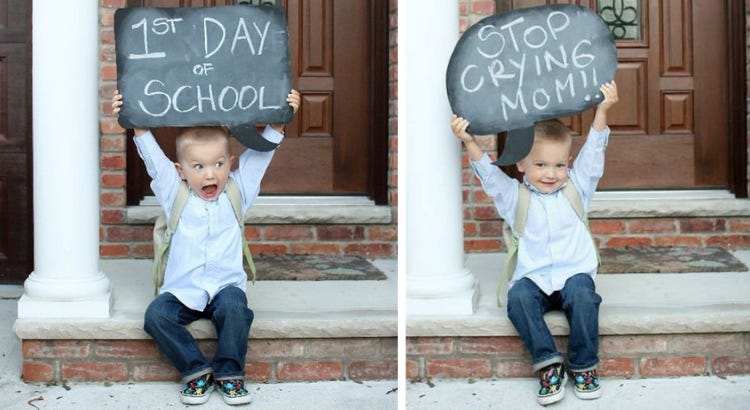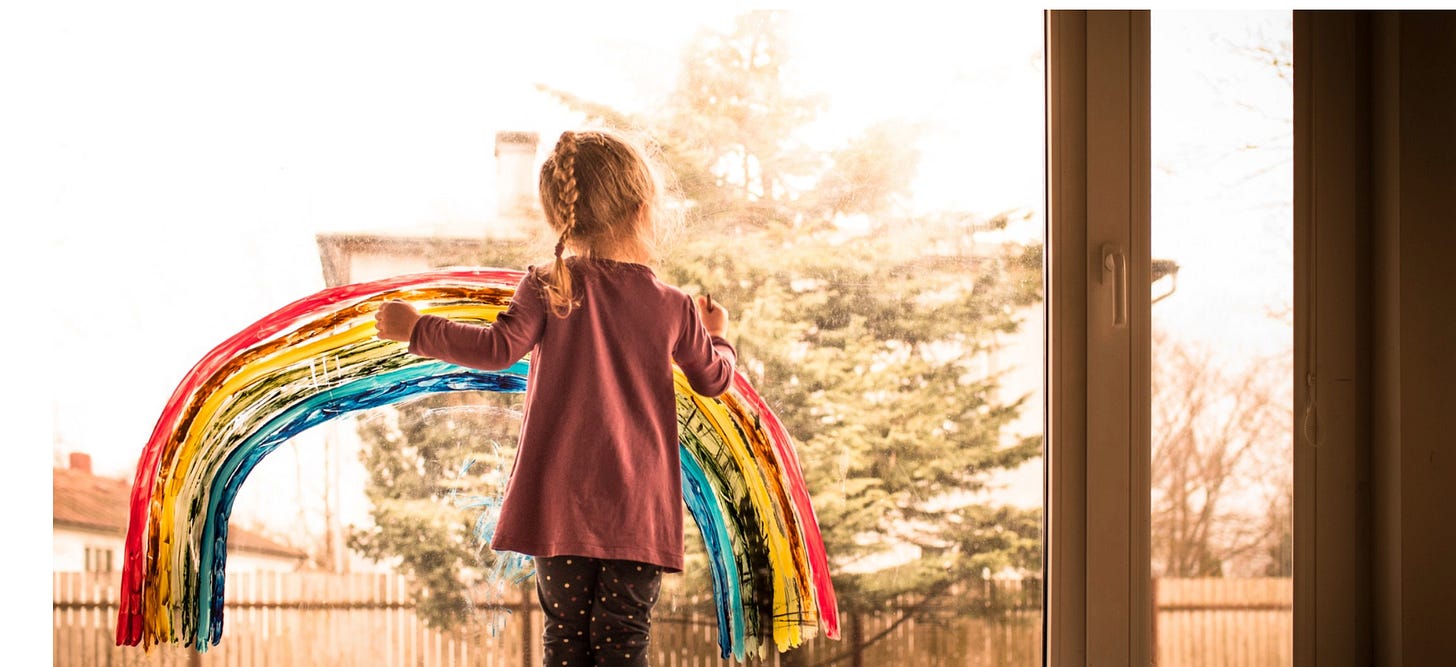Small Talks, No. 24
August 20, 2021
Welcome to the twenty fourth edition of Small Talks. Every Friday, I highlight 6 areas of weekly joys and reflections in early childhood and the whole family. Small Talks leverages my experience at the intersection of education, philanthropy and impact investing. Enjoy!

What I’m celebrating -
Important perspective by two former Generals on “Why The Child Care Crisis is a National Security Issue” that includes this powerful quote:
“Neither party has a monopoly on good ideas for how to expand access to child care. The question now is whether they'll have the compassion, wisdom, and political will to do so. We hope that elected officials will confront this crisis with the same sort of determination and resolve that they have used when faced with other sorts of challenges to our national security. The stakes for our future couldn't be higher, and the need for action couldn't be clearer.”
Great piece by Jennifer Carolan, partner at edtech venture fund Reach Capital, that beautifully captured the moment: “Signs of Hope and Progress in an Angst-Filled Backed to School Season”
Those pictures of a pioneering play street in Tel Aviv, first trial in disadvantaged neighborhood engaging asylum seeker and refugee families in safe, creative play right outside their door, building community and learning through play.
What I’m listening -
Inspiring and authentic interview between two leaders in early childhood education - Dr. Lynette Fraga, CEO of ChildCare Aware, and Dr. Myra Jones-Taylor, chief policy officer with Zero to Three.
What I’m reading -
The State Must Provide by Adam Harris reflects on the history of inequality in higher education, and specifically how historically Black colleges and universities (HBCUs) were started and remain underfunded. This is such an important read, both to understand the past, and forge a more equitable future. I have also enjoyed this NPR interview with Terry Gross.
What I’m watching -
Dr. Kimberly Noble has dedicated her research to the effects of poverty on children. In this TED Talk, she highlights how poverty is directly connected to child brain development. A child raised in poverty is 75x more likely to be poor at 35. Her work on neuroplasticity shows that early interventions make a difference.
Her analysis is timely, as data show poverty has fallen to one of the lowest rates on record.
What I’m learning and exploring more deeply -
Interesting new poll from the Institute for Family Studies, showing that a majority of parents prefer woking from home, and also express a preference in parenting children at home (although data are for children 0-18, so likely higher percentages for slice of parents with younger children).
Important words of wisdom by student parent and friend Drayton Jackson, sharing his experience going through college with housing insecurity and childcare costs.
Edtech’s next mission: Go everywhere highlights how edtech is expanding its reach both geographically and in launching “products that take into account the full human experience.”
Remaking the grades? highlights a transformative experiment in a school district in North Dakota focused on competency mastery, and not grades.
This “mind-expanding” piece on how new technologies are enhancing learning abilities: boosting memory, linking minds, gaming the brain, energizing thought, or monitoring pupils…lots of ethical questions ahead.
Quote I am pondering -
“One child, one teacher, one book, and one pen can change the world. Education is the only solution. Education first.”
— Malala Yousafzrai
Feedback is a gift. Which part above is your favorite? What did I miss? What do you want more or less of? Other recommendations? Please kindly let me know. Thank to all all of you who are sending me amazing suggestions.
If you enjoy this newsletter, please help spread the word by sharing with your friends, colleagues, and networks.
Have a wonderful week. Please stay safe and care for each other.
Isabelle







